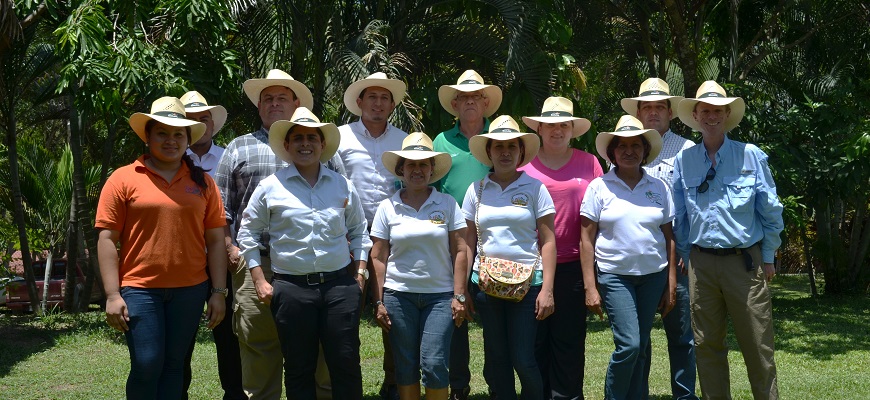
Chocolate fix
Agrotourism research to help Honduras
Posted on: July 14, 2017; Updated on: July 14, 2017
By Allen Wallace, awallace@sc.edu, 803-777-5667
Two University of South Carolina professors are working on interdisciplinary research to help improve life in one of the most poverty-stricken countries in Latin America.
"Honduras is very close to my heart because my husband is from there," says Marketa Kubickova, assistant professor in the School of Hotel, Restaurant and Tourism Management. "I was always interested in doing research there because I know they are pursuing tourism as part of their strategy for economic development and growth."
Kubickova is an international hospitality expert and specializes in tourism economics and sustainability. When the opportunity came up to do a study on agrotourism opportunities in Honduras, she reached out to assistant retailing professor Jeff Campbell, who specializes in consumer behavior and locally produced foods. Kubickova and Campbell both work in College of Hospitality, Retail and Sport Management.
"Their ultimate goal is to provide training and job opportunities to Honduran people so they are able to stay and don’t leave in search for a better life."Marketa Kubickova
Their research uses their combined expertise to identify ways for Honduras to boost tourism by leveraging agricultural attractions including the country’s cacao farms. Honduran cacao was recognized at the 2015 Salon Du Chocolat in Paris as the best cocoa in Central American and the Caribbean.
Kubickova and Campbell applied for and won a university interdisciplinary faculty grant. Then, with the collaboration and support of Honduran Minister of Economic Development Arnaldo Castillo, they visited and explored the country, meeting with government officials, various stakeholders, farmers, business owners and many residents.
“We’re looking at local perspectives and engaging communities to discover sustainable tourism potential,” Campbell says. “Much like people tour wineries or coffee plantations, chocolate is another food that people might love to experience at the source.”
While their primary focus is agrotourism, Kubickova and Campbell also gathered data related to tourism satisfaction, Honduran infrastructure and information centering on small businesses. Minister Castillo and other Honduran leaders hope a boost in tourism will help their nation recover and improve the quality of life for their people.
Kubickova met with Honduran President Juan Orlando Hernández to officially present the results of the research during the Conference on Prosperity and Security in Central America, which took place in Miami in June.
“He was very excited to hear about this project and what we are doing for Honduras,” Kubickova says.
The report offered research findings on agrotourism opportunities and provided suggestions for product diversification, the role of government, marketing and other areas, as well as an examination of current and potential visitors.
Honduras has been a developing country in turmoil in many ways. At one point, about three years ago, it had two cities with some of the highest murder rates in the world with more than half its population living in poverty. It is a nation still in recovery from the 1998 devastation of Hurricane Mitch, which killed more than 5,600 people and caused approximately $2 billion in damage as well as the 2009 Honduran coup d'état.
However, Kubickova says there are many positive signs.
"I can tell you in terms of safety, Honduras has been improving tremendously, especially with the current government," she says, adding that the improvements are quite visible when comparing her first visit in 2011 with her most recent this year. This has been also reflected in the United Nations Commission of Human Rights report from this July, in which Honduras moved up 19 points on their Global Peace Index.
Kubickova and Campbell are preparing to submit their final findings for academic publications and conference proceedings. They hope to secure additional grants so that their research can continue to help Honduras’ progress towards a sustainable economy.
Share this Story! Let friends in your social network know what you are reading about